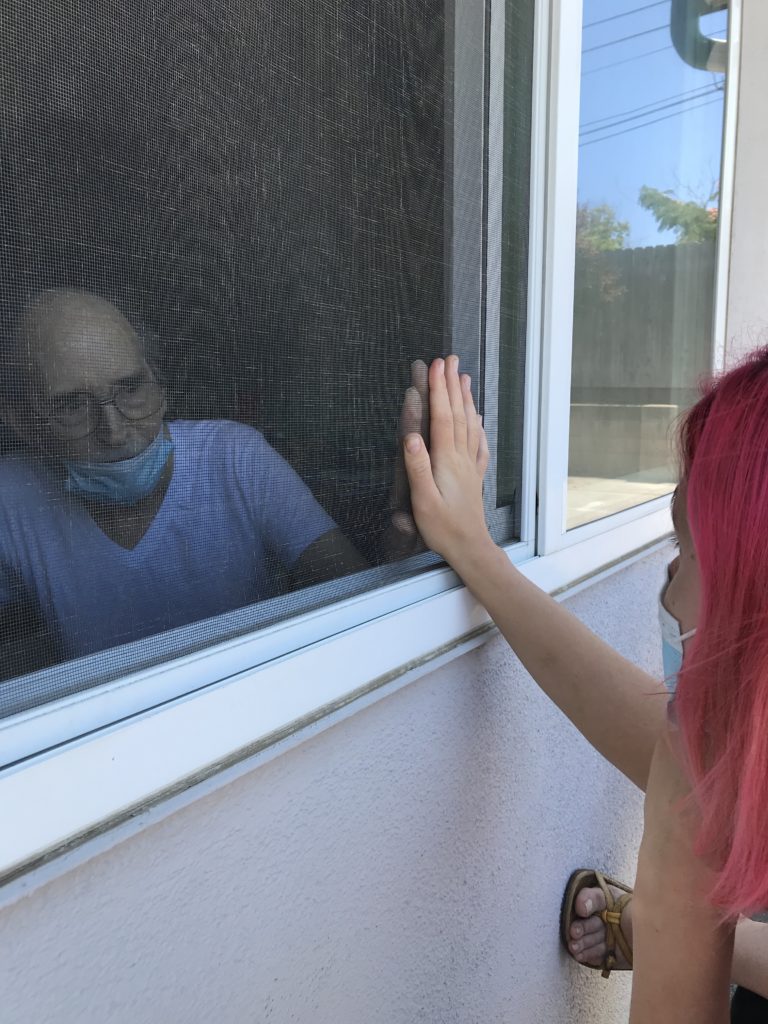Normally, members of the immediate family can sit with a resident during hospice. Due to the pandemic, though, they limited that to one person.
When two staff members at my father’s facility recently tested positive for COVID-19 virus, they cut in-person visits. So I sat outside Frank’s room, along with my wife and daughter. My daughter was scheduled to leave for college in two weeks (where she would undergo her own quarantine before the fall semester), and she wanted to have a final visit with her grandfather.
It was difficult. He managed to position himself close to the window so he could see and hear us. The staff made him wear a mask (even if it slipped).
It’s been almost two months since my father has received a blood transfusion, with a commensurate drop in his blood oxygenation. That translates into even more pronounced cognitive decline and paranoia.
On this visit, he was convinced that “the military” owed him a chunk of money, a reward for keeping his unit expenses under budget. He didn’t have any documentation, but he had a distinct memory of a photo of a number of American soldiers by a river, carrying what might have been German swag.
I assured him that I was very clear on his financial picture, and there were no loose ends with the VA. His financial advisor had all the accounts, and they were invested in boring, conservative funds. Don’t worry about it. (Later, I realized he was conflating one of the many WWII documentaries he’d watched on the History Channel with his never-ending dream to leave behind a sizable inheritance for his family.)
Still, he insisted. Fortunately, my wife interrupted, and reminded Frank that his granddaughter was leaving for college soon. Perhaps we could talk about that?
And we did. He remarked on her “crazy pink” hair, the opportunities of Chicago, and his belief that she would be successful.
It was, on the whole, a good visit, but one that ended in tears all around.

P.S. Two days later, when I was back home, my father called me. This was a good sign, I thought. He’s using his mobile phone again.
“Can I ask you a favor?”
Sure.
“Do you have your mother’s phone number?”
He was asking me for the landline number, which is the first speed dial on his mobile.
The number hasn’t changed in half a century. He called it every day from the office to say he was leaving. He called it from the hospital when he was under psychiatric observation. And he asked the staff at the assisted living facility to call that number when he couldn’t find his phone.
I took a deep breath and gave it to him.

